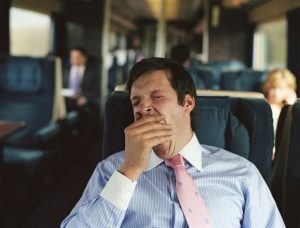
Ear popping is commonly brought on by the differences in the pressure outside of ear drum and the Eustachian tube inside, commonly taking place during flying, diving, or climbing high altitudes.
What causes ear popping when swallowing?
Something inside of the ear: Sometimes earwax or even a hair can get lodged in the ear, so you may experience popping when it vibrates. Removing the foreign object or earwax can offer relief.
Eustachian tube dysfunction: The Eustachian tube connects the throat to the middle ear. When the lining of the tube becomes inflamed, any movement in the area causes ear popping.
Temporo-mandibular joint (TMJ) disorder: TMJ disorder can create sounds that seem to come from the ear, but are actually due to the disorder.
Muscle spasms: Muscle spasms occurring in or around the ear can cause clicking or popping sounds.
Secretory otitis media: This is an accumulation of fluid in the middle ear which can develop from an ear infection. Your ears may feel full and pop when you swallow.
Unequal pressure: This occurs due to changes in atmospheric pressure, when the middle ear tries to restore the air pressure balance inside the ear. Pressure imbalance can be caused by swimming, flying, or being at higher altitudes. Swallowing or yawning can help relieve the pressure difference.
Allergies: Allergies or a sinus infection can block the Eustachian tube. If it’s not serious, you can obtain relief by yawning, swallowing, or chewing. If fluid builds up, you will need medications.
Ruptured or perforated ear drum: A hole or tear in the ear drum may begin to pop, accompanied by pain and discharge.
Congenital defect: Genetic defects can block the Eustachian tube.
Meniere’s disease: Meniere’s disease may be caused by abnormal levels of fluid buildup, although its exact cause isn’t fully understood. Other symptoms include vertigo, tinnitus, hearing loss, and ear fullness.
Symptoms of popping in the ears
- Pain or discomfort in the ear
- A feeling of fullness or pressure in the ear
- Ringing in the ear (tinnitus)
- A change in hearing
- In severe cases, hearing loss, bleeding, and vomiting
Symptoms related to ear popping are largely influenced by what the cause of the ear popping is.
Treatment options for popping in the ears
Here are some treatment options and home remedies that can help you get rid of the crackling sound in your ear and the popping sensation:
- Chew gum or suck on hard candy
- Take a decongestant if ear popping is a result of allergies or a sinus infections
- Try a nasal steroid spray
- Take an antihistamine
- Pinch your nose and attempt to blow out air through it
- Remove earwax by putting some olive oil in your ears
- Do not stick cotton swabs or other objects to clean your ears
- Use filtered earplugs when flying
- Try yawning
- Get treated for any ear infections
By following these tips, you can have better relief for your popping ears. If the problem is persistent, go see your doctor to uncover the underlying health problem.
Related: Lump behind ear: Painful and painless swelling, causes, symptoms, and treatment